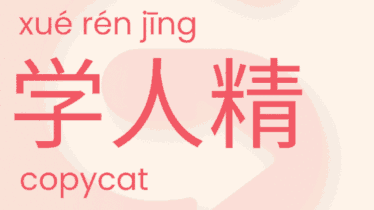How to say ‘but’ in Mandarin Chinese
There are a variety of ways to say ‘but’ in the Mandarin Chinese language, and the use of which one may depend on context, but many of the words are homophones to each other. But it’s good for any intermediate (HSK4+) Mandarin learner to alternate the vocabulary used in conversations. This is not just because different ‘but’s’ have slightly different meanings. It’s also to have to speak Chinese more fluently. Using the same vocabulary over-and-over sounds monotonous. Look at the following example:
- 我去了办公室,但是忘了钥匙。 然后,我乘地铁回到了家,但是我的手机丢了。 最后我终于回到了家,但是开始下雨了。 你们看!这就是为什么我的衣服弄湿了。
- Wǒ qùle bàngōngshì, dànshì wàngle yàoshi. Ránhòu, wǒ chéng dìtiě huídàole jiā, dànshì wǒ de shǒujī diū le. Zuìhòu wǒ zhōngyú huídào le jiā, dànshì kāishǐ xiàyǔ le. Nǐmen kàn! Zhè jiùshì wèishéme wǒ de yīfú nòng shīle.
- I went to the office, but I forgot my keys. Then I took the metro back home, but I lost my phone. Then I finally got home, but it started to rain. So that’s why my clothes are wet.
In this sentence, it’s good not to use 但是dànshi three times, but alternate different ways to say ‘but’ in Chinese.
You probably know a few ways of how to say ‘but’ in Chinese:
- 但是(dànshì) / 但(dàn)
- 可是(kěshì)
- 然而(rán’ér)
- 不过(búguò)
- 却(què)
All these words mean the same thing. They can mean ‘however’, ‘but’, or ‘yet’.
Here, When using these words to say ‘yet’, they only apply when ‘yet’ is used as a conjunction (to mean nevertheless or but at the same time), not when ‘yet’ is used as an adverb (to mean up until now).
但(是)dàn(shì) is a formal ‘but’
First, ‘但是(dànshì)/但(dàn)’ is the vanilla phrase for many Chinese learners. ‘但是(dànshì)’ and ‘但(dàn)’ mean the same thing, ‘但(dàn)’ is just the shorter form.
This phrase does mean ‘however’, ‘but’, and ‘yet’ as well. Yet many foreign Chinese language learners don’t know it’s a more formal phrase. If you were writing an essay in Chinese, this phrase could be used to say ‘but’ in Chinese, but in daily conversation, most people use the other phrases we’ve listed. If you’re a non-native speaker, it’s unlikely that you’d use this phrase.
可(是)kě(shì) is a casual ‘but’
Another way to say ‘but’ in Chinese is ‘可是(kěshì)’. This phrase means ‘however’ and ‘but’, These are largely the same with ‘但是(dànshì)/但(dàn)’. The small difference is that ‘但是(dànshì)/但(dàn)’ is slightly more formal, whereas ‘可是(kěshì)’ is just a bit more informal and a tad weaker in tone. You really don’t need to worry about which one is the right one to use though, since they can be used interchangeably.
然而rán’ér is formal
A third way to say ‘but’ in Chinese is ‘然而(rán’ér)’. This phrase can mean ‘however’ and ‘but’, but cannot be used to say ‘yet’. The difference between ‘然而(rán’ér)’ and ‘可是(kěshì)’ is that ‘然而(rán’ér)’ is more formal. For instance, use this in Businesss Chinese situations!
不过búguò is casual
Fourth, ‘不过(búguò)’. Instead of just using ‘但是(dànshì)/但(dàn)’, or ‘可是(kěshì)’ you can also use the softer and more informal 不过 (búguò), which also means ‘but’. Imagine the following sentence where you want to ‘soften’ the ‘but’ you use:
- 今晚我也想去看电影,不过我要加班。
- Jīn wǎn wǒ yě xiǎng qù kàn diànyǐng, bùguò wǒ yào jiābān.
- I also want to go to the movies tonight, but I have to work overtime.
Hopefully, this article on how to say but helps you to gain more fluency and detail in your Chinese conversations!



